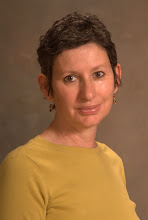http://www.latimes.com/news/opinion/commentary/la-oe-welch3-2008nov03,0,2369816.story
Naturally, I had something to say on this point, and I dashed off a letter to the editor. The LA Times was kind enough to publish my response, and I've attached it here:
It's hard to know what the best approach to cancer-screening actually is. Even with my experience with mammography, my doctors, all experts in the breast cancer field and people whom I trust, insist that I get frequent mammograms. Of course, they only use state-of-the-art digital mammography, which produces a better image than traditional film x-rays.Re “The excessive focus on mammography,” Opinion, Nov. 3 H. Gilbert Welch argues against excessive use of mammography because the test identifies some cancers that will never will never develop to cause symptoms or death. I also argue against too much dependence on mammography, but for the opposite reason. My cancerous breast tumor could not be seen on my mammogram, and I received a negative
result.Fortunately, I could feel the peanut-sized tumor with my fingers and pursued necessary medical treatment. Mammography is far from perfect because it misses cancers, not because it detects too many.
So I do what I'm told. But I continue to think that there must be a better way to screen women, a method that is both medically meaningful and cost effective. Until we have one, however, I will get my mammograms, but only with digital technology. (Women should ask their medical providers which type of mammography equipment they use and avoid facilities that have not yet upgraded.) Beyond that, it seems prudent for all of us to stay vigilant and know our own anatomies, so that we can detect when something has changed. While finding a lump may be scary, the idea of a tumor going undetected is even scarier.




